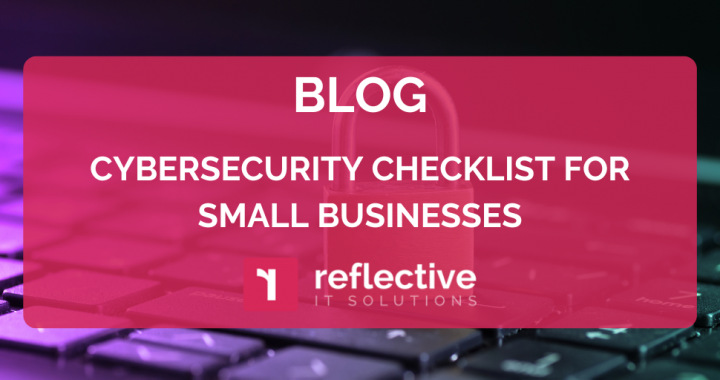Essential Measures to Protect Your Data and Systems
Small businesses are increasingly becoming targets of cyberattacks. It is crucial to prioritise cybersecurity to safeguard sensitive information and maintain business continuity. Use this checklist to ensure you have implemented essential cybersecurity measures.
1. Strong Passwords:
-Encourage employees to create strong, unique passwords and regularly update them.
-Implement multi-factor authentication (MFA) for an added layer of security.
2. Employee Training:
-Conduct regular cybersecurity awareness training sessions for employees.
-Educate them about identifying phishing emails, suspicious links, and social engineering techniques.
3. Regular Updates:
-Keep all software, operating systems, and applications up to date.
-Enable automatic updates to protect against known vulnerabilities.
4. Secure Wi-Fi:
-Change default Wi-Fi passwords and use strong encryption protocols (WPA2 or WPA3).
-Separate guest and business networks to limit unauthorized access.
5. Firewall Protection:
-Install and enable a firewall to monitor and control incoming and outgoing network traffic.
-Configure the firewall to block unauthorized access and known malicious IP addresses.
6. Data Backup:
-Regularly backup all critical data to an offsite location or cloud storage.
-Test the backup and ensure it can be restored successfully.
7. Secure Devices:
-Implement mobile device management (MDM) to enforce security policies on employee devices.
-Enable remote wipe capabilities to protect data in case of loss or theft.
8. Antivirus and Anti-Malware:
-Install reputable antivirus and anti-malware software on all devices.
-Update definitions regularly and perform regular scans.
9. Web Filtering:
-Use web filtering tools to block access to malicious websites and prevent downloading of harmful content.
-Implement content filtering to restrict access to non-work-related websites.
10. Incident Response Plan:
-Develop an incident response plan to outline steps to be taken in case of a security breach.
-Include procedures for containment, investigation, and recovery.
11. Secure Cloud Services:
-Choose reputable cloud service providers that prioritize security and offer data encryption.
-Understand the shared responsibility model and ensure compliance with data protection regulations.
12. Regular Security Audits:
-Conduct periodic security audits to identify vulnerabilities and gaps in your cybersecurity measures.
-Address any identified issues promptly to enhance your overall security posture.
Regularly review and update your cybersecurity practices to stay ahead of evolving threats. Remember, cybersecurity is an ongoing effort to safeguard your business and maintain customer trust.










